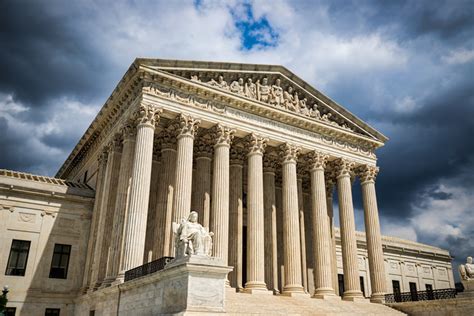In March 2020, Congress passed the Coronavirus Aid, Relief, and Economic Security Act to alleviate burdens caused by the COVID–19 pandemic. Pub. L. 116–136,134 Stat. 281. This Act imposed a 120-day eviction moratorium, which was extended until the end of July 2020. This moratorium denied landlords and lenders from evicting tenants and borrowers from their properties due to nonpayment. Essentially it allowed anyone in the US to stay in their home whether they could afford to pay their rent or mortgage. Congress did not extend the eviction moratorium. The Center for Disease Control (CDC), which is a government sponsored entity, decided to do what congress would not and took it upon themselves to extend the eviction moratorium; they even imposed severe financial penalties and the threat of imprisonment for 1 to 5 years for those that broke their “law”, and they also extended the moratorium to all residential properties in the US. They continued extending the moratorium repeatedly until the last extension was made until the end of October 2021.
This moratorium may have noble intentions; stopping some from having to move in the middle of a pandemic and possibly increasing their exposure to a virus, but the moratorium did cause a few side effects. First of all, Landlords and lenders were essentially left holding the bag. I personally have a few rental properties out of state and have 2 renters that were still working and could afford to pay, but decided not to. There is nothing that could be done; and now they are 1 ½ years behind on rent, yet I still am making the mortgage payment. In fact, the landlords have to not only pay the rent, but keep the home in proper repair at their personal expense. We saved our entire life to invest in some rental properties only to have that ability endangered by such a sweeping act of congress, and then by the CDC.
Second, the eviction moratorium stopped the normal eviction process for lenders. Foreclosures were stopped. This drove up housing prices during the pandemic as fewer homes were put on the market and shrinking the supply. This also caused the amount of people that are 30 days past due or in foreclosure to increase to 2,346,000 as of July 2021. The number of home loans that are not in foreclosure but are past due on their payments is around 828,000 (4.14% of 20 million with loans).
On Thursday August 26th 2021, the Supreme Court ruled 6 to 3 that the CDC had no authority to create law or regulation in regards to the eviction moratorium, nor impose criminal or civil penalties. The CDC imposed a nationwide moratorium on evictions in reliance on a decades-old statute that authorizes it to implement measures like fumigation and pest extermination; it strained credibility that the CDC could use that authority to set national rent standards. This is a win for the Constitution as that document stipulates that only congress can pass a law after being signed by the President of the United States.
So today we have record high prices in the US and at the same time have a tidal wave of foreclosures and forbearances on the brink of coming due. Many real estate professionals are concerned about a coming correction in housing prices the end of this year or beginning of next year. Not one of us has a crystal ball, but whether or not the housing prices crash, dip, or continue will depend on how many of these homes are foreclosed and when. Perhaps it would be a good time to review getting a reverse mortgage and setting aside some equity in a protected Line of Credit while interest rates are near record lows. If you would like to look into protecting your equity with a RM line of credit or tenure payment, you may contact Robert Krepps rkrepps@hightechlending.com or toll-free at 877-567-7476.
Robert Krepps, NMLS #255191, at HighTechLending Inc. HighTechLending Inc, NMLS # 7147, is an Equal Housing Lender. Licensed by the Department of Financial Protection and Innovation under the California Residential Mortgage Lending Act.


